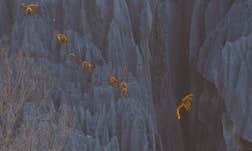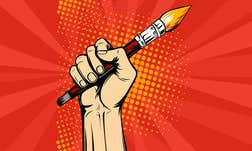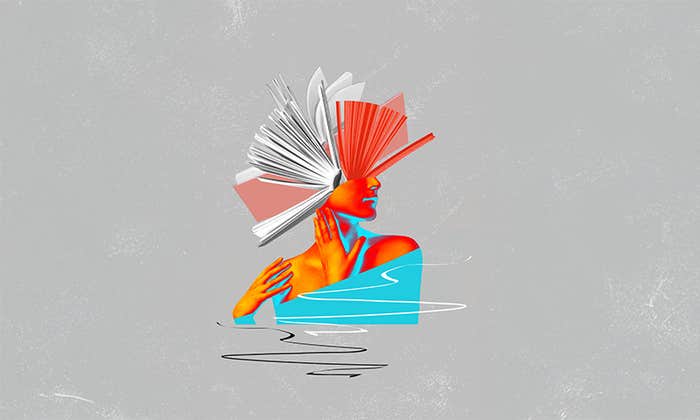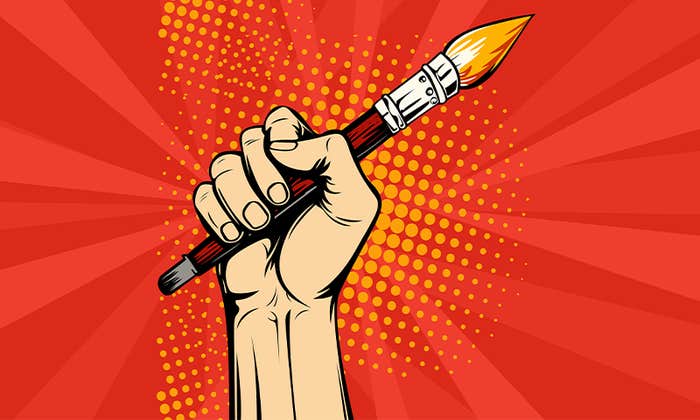Rafael Campo speaks Nautilus’ language. A professor at Harvard Medical school and Lesley University, and a practicing physician, he has also published a-half dozen volumes of poetry and won a Guggenheim fellowship for his work. A passionate believer in experiencing patients’ illness through both a scientific and a humanist lens, Campo demonstrates a remarkable balance between a mechanistic curiosity and a deeply felt empathy. Science and art, he tells us, are asking the same kinds of questions. Which could have come straight from this magazine’s first editorial meeting.
Campo chatted with us last month.
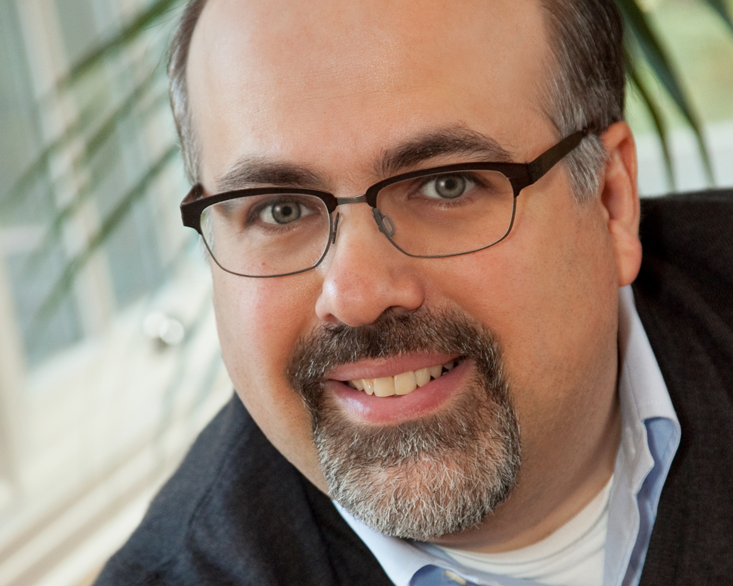
One of your poems reads: “It was terrible, what the body told / I’d look inside another person’s mouth, / And see the desolation of the world.” Could you talk through what those lines mean?
Every encounter with a patient is a kind of demonstration of a weird paradox. I have all of this amazing technology, all of this book learning and medical training that has helped me understand the mechanics of the body. And yet that biomedical understanding doesn’t fully explicate the experience of suffering that my patients relate to me. What I was trying to get at with those lines of poetry is that juxtaposition: We are both limited by our bodies, and in this constant state of amazement as inhabitants of our bodies. Poetry has this astounding and terrible power to speak the unspeakable. It is the perfect medium for trying to express the conundrum that I experience every day in my work as a physician.
When does poetry become a tool for a doctor?
Medical technologies inevitably reach their limits. There isn’t going to be another round of chemotherapy. There’s not another medication to try. What do we still have to offer in those moments? What we have to offer is our hearts, our souls, our human connection. In those moments of reaching the limits of my knowledge I reach for other kinds of tools. I try to act as interpreter of my patient’s suffering. There are many inspiring precedents: Traditional healers in Native American cultures use performative language to effect a kind of healing for the afflicted. For ancient Greeks, catharsis was experienced through the dramatic reading of poetry, and was felt to be healing. There is a profound connection between our impulse to alleviate suffering in that very fundamental sense, and what poetry can do.
Do medical schools teach doctors to engage with the human dimension of their patients’ experience?
When I was a medical student, there was an active effort to teach what was termed “detached concern.” This meant being present with distance in evaluating the patient, making the diagnosis, and recommending a treatment plan, so that your emotions didn’t cloud your reasoning. This oxymoronic stance was a kind of a byproduct of our data-driven approach to diagnosis and treatment. There was also a sense that young impressionable medical students, not experienced in the terrible ways of the world, needed to be shielded from the indelicacies of human suffering. In our current generation of medical students there’s more of a sense of the kind of harm that that distancing can do, that teaching young idealistic healers to remove themselves from the human experience of their patients and act more like technicians can actually lead to more cynicism, more burnout, and career dissatisfaction. There are some studies suggesting that the erosion of empathy can even lead to bad patient care. It’s another reason I’m really interested in the arts and humanities in medical education: They’re a strong antidote to that way of thinking about the doctor-patient relationship.
But many of our celebrated fictional doctors practice detached medicine—Gregory House for example.
House is a really interesting example of a cultural expression of how we think about doctors and how doctors think about themselves. And people find it really compelling. I was just talking yesterday with the first-year medical students at Harvard about depictions of doctors in media, and we talked about House. A couple of students in the group remarked how they were attracted to medical careers by the persona of House, someone who saw patients not as human beings who were suffering with disease but as medical mysteries to be solved. It was a really striking reflection of our larger culture’s love affair with science. We have our white coats. We’re above the sordidness of what patients go through. Our science privileges us and inoculates us against all of that. There are many examples of how we want to explicate the problems of human suffering because it’s intolerable to accept that that’s part of our humanity. We want answers. We want a pill that’s going to get rid of the depression or the pain. We want stem cells that are going to just cure the cancer. This is also an expression of who we are as creatures, as human beings. We don’t want to suffer. What’s ironic is that we probably will never have an explication of why we suffer. Thus we go to the arts and humanities, which help us contextualize our suffering in the experience of others, imparting wisdom and comfort if not a definitive answer.
What would you say to a young scientist who’s struggling to find the human aspect in his or her research?
One thing we do with our students is take them to the Museum of Fine Arts here in Boston. We look at paintings and statues and other kinds of art that express the experience of human suffering. The kinds of responses that students who are cloning genes and doing stem cell research have to this art helps them to see that their work is not just about a new molecule that will have anti-tumor properties, or a new way of isolating stem cells. They begin to see their own work as contributing to a larger attempt to heal. So I would tell the young scientist to cross those disciplinary lines. Pop over to the humanities side of campus. Go to a poetry reading. And the poetry folks and the doctors of philosophy ought to go to more science lectures, too. Ultimately and fundamentally, we’re all asking the same kinds of big questions.
What would you most like to know about the science of empathy?
The poet in me bristles whenever I start to think about what is empathy really? I just want to have a space in our lives that allows for wonder and mystery—not necessarily explaining it away. At the same time the scientist in me wants to know, is it a neural circuit in our brain? What are the mirror neurons in our brains doing when we feel empathy? What are the ends of empathy? What are its benefits? Do students who are more empathetic have more meaningful relationships with their patients that lead to better outcomes—and if so, how? Another question I always have is how do we actually measure empathy? Is there a way to quantify this very elusive capacity inside of us?
Is there a sort of scientific effort happening inside poetry today?
There are so many different kinds of poetry being written now, some of which are very experimental and interested in reducing language into its components and, in a way, riffing on what happens in science. There’s an archaeology to the words we use. When we say a word, we’re repeating a construct that has been handed down across many generations. Through poetry, we can investigate those kinds of connections. Yet some poets are interested in poems as sound experiments, antagonizing meaning, refusing order and structure, questioning the very nature of language as a mode of communication or container of emotion. It’s an interesting time in poetry.
Do you remember the moment that you decided to go into medicine?
I do. My desire to become a physician had most to do with seeing human suffering firsthand. As a child growing up in Venezuela I saw kids my age who were obviously malnourished, and I knew on some level that I wanted to do something to remedy that. I also loved science, even at that age. We were dissecting frogs at school and I loved the idea that there were these organs inside of us that somehow determined how we existed. But that first inchoate impulse of, “I want to be a doctor,” had more to do with seeing those kids who were my age and knowing that there was something wrong in their bodies that I wanted to heal. In seeing those kids who were like me but who were not me, I felt expressed a kind of wound that had to do with my being an immigrant and ultimately coming of age the United States, and not being able to visit Cuba, where my father’s family is from. That dislocation felt like an almost physical fracture. His experience and my family’s experience and my own were really kind of an injury. Tied up in that impulse to become a doctor was wanting to repair a metaphoric wound that, in some ways, really can never be cured, and certainly not rationalized.
If you were going to study a science besides medicine, which science would you pick?
Gosh, I don’t know. I haven’t thought about that. I’m just so consumed by medicine as a science driven by the human. But I’m fascinated by physics and this everything-and-nothing concept inside quantum physics, as well as this finite and yet always-expanding universe and what exists beyond the universe. Quantum physics, in particular, might be the science I would most want to study. It seems to express the same kinds of paradoxes as does poetry.
Lead Art Credit: Billions Photos; Gts / Shutterstock


















